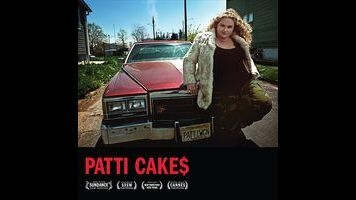The best and the most credible thing about the movie is its star: Speaking (and spitting) in a solid Jersey accent, Aussie newcomer Danielle Macdonald makes her character, aspiring rapper Patti Dombrowski, extremely sympathetic. When she slips on her headphones, Patti (a.k.a. Patti Cake$, a.k.a. Killer P, a.k.a. a half-dozen other premature aliases) is a legend already, floating off to preside over a foggy, green-tinted, ’90s-music-video dreamland. Her real life, penning bars when not tending bar on the dead-end suburban fringes of the Garden State, is much less glamorous. Although Patti has flow and attitude to spare, she’s also a heavyset white woman, and so almost no one takes her seriously—not the guys she freestyle-battles in gas-station parking lots, not the amused naysayers at the local recording studio, not even her mother (Bridget Everett), the onetime frontwoman of an ’80s hair-metal band that almost got signed, mostly on the strength of a power ballad called “Tuff Love.”
Thankfully, Patti has a small but very loyal fan base: her ailing, grizzled grandmother (Raging Bull’s Cathy Moriarty) and her best friend and partner in crime, Jheri (Siddharth Dhananjay), a.k.a. Jheromeo, a.k.a. Rawdog Millionaire, a wannabe R&B crooner who works behind the counter of a pharmacy by day and supplies the hype and the hooks by night. Whenever Patti Cake$ lets Patti—and by extension Macdonald, who learned how to rap for the role—come out of her shell and flex her musical muscle, the movie briefly hums with the excitement of unleashed creativity. Not that the music itself is quite so hot. When Patti and Jheri finally lay down a track, it’s catchy but also supremely dopey: a bootleg radio banger with an Auto-Tuned chorus, stray blasts of generic guitar, and a looped vocal sample of Moriarty rasping the makeshift hip-hop crew’s name. (If that sounds lame, know also that this is a movie that treats an old woman posing in a wheelchair and ski mask for a gaudy album cover like the height of hilarity.) Later, for a big climactic performance, the group essentially just rips off “Lose Yourself,” biting the inspirational lyrics, the piano intro, even Em’s gathering-storm cadence.
For production duties—and obligatory romantic subplot—the movie looks to a lanky, taciturn loner (Mamoudou Athie) who performs spastic “political” noise-rap tantrums under the moniker Basterd The Antichrist. (“What kind of music is that?” Patti asks him after a gig, to which he could have responded, “Whatever Death Grips play.”) It might be disconcerting to watch Patti coerce this proudly underground musician into flattening his conscious racket into club beats, except that the movie basically calls him out as a phony: Basterd, who’s set up a miniature studio in his shack in the woods, fancies himself an anarchist (“Wake up, sheep,” he bellows into the mic), but he’s really just a shy goth kid with delusions of grandeur. It’s not the only time Patti Cake$ shrugs off the issue of authenticity. We’re meant to boo and hiss when one of the villains labels Patti a “culture vulture.” A smarter movie might have interrogated her appropriation, even if only to conclude that her upbringing—dirt poor and disrespected in the city—isn’t radically different from that of the black artists she emulates. Instead, Jasper just treats the dis like another setback on the road to believe-in-yourself redemption.
Really, everything in Patti Cake$ is a prelude to uplift; a familiar feel-good trajectory emerges from playing connect the dots with the tropes and recycled plot points. Jasper drapes the film’s rags-to-riches conventions in a veneer of kitchen-sink “realism,” shooting the characters in tight, deglamorizing close-up and soaking up the strip-mall, dive-bar ordinariness of Patti’s stomping grounds. But no amount of gritty environmental detail—or caffeinated, knockoff-Danny Boyle stylistic flourishes, like the speedball cutaways to Patti’s daydreams of rap superstardom—can disguise the derivative Hollywood moves Patti Cake$ busts. It fronts like a lo-fi mixtape cut, but is closer in calling-card spirit to a budget Bad Boy entertainment: Puff Daddy’s Forever in dirty Jersey drag.

 Keep scrolling for more great stories.
Keep scrolling for more great stories.
